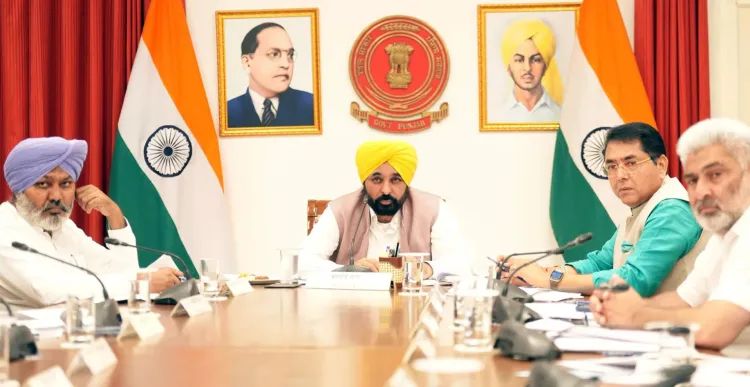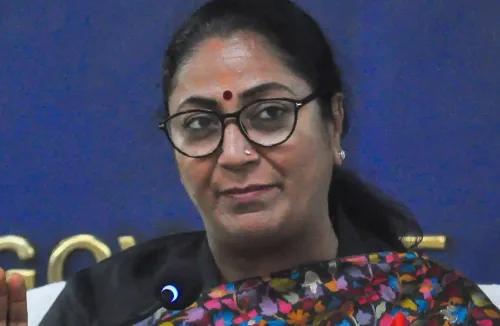What New Measures Did the Punjab Cabinet Approve for Land Pooling?

Synopsis
Key Takeaways
- New land pooling policy aims for sustainable development.
- Direct benefits for farmers to prevent exploitation.
- Partial surrender of licenses under PAPRA Act.
- Incentives for lump sum property payments.
- Increased charges for real estate development.
Chandigarh, June 2 (NationPress) The Punjab Cabinet, under the leadership of Chief Minister Bhagwant Mann, has officially sanctioned the launch of a revolutionary land pooling policy aimed at fostering planned and sustainable development.
A representative from the Chief Minister’s Office stated that the initiative is designed to engage landowners, promoters, and corporations as integral participants in the development framework, thereby enhancing interest in land pooling among property owners. The updated scheme has been optimized to significantly assist small and marginal farmers, providing them with more alternatives, which will promote group housing and organized development, ultimately benefiting the general populace.
The policy is crafted to guarantee comprehensive growth by incorporating every stakeholder in the process. It stands to be a transformative approach for the region, offering substantial advantages for farmers. The exploitation of farmers will cease, as they will be the direct beneficiaries. No private developers or land mafia will be able to take advantage of farmers, thanks to the protective measures embedded within this policy.
Additionally, the Cabinet has sanctioned the partial surrender and cancellation of licenses issued for colonies under the Punjab Apartment and Property Regulation Act (PAPRA), 1995, along with the partial annulment of approvals for industrial park initiatives. A directive in this regard was announced on March 10, pertaining to the surrender of licenses necessary for developing colonies under the PAPRA Act and permissions for industrial parks. This resolution permits the partial surrender of licensed lands, adhering to specific conditions, and partial suspension or cancellation of licenses for such endeavors.
To incentivize allottees and bidders of residential, commercial, and various property plots to make lump sum payments of 75 percent of the total fee, the Cabinet has also approved several benefits. A 15 percent discount on the cost of the plot or site will be granted to those who opt for a lump sum payment. This initiative, according to the spokesperson, is anticipated to secure consolidated revenue for the government while concurrently diminishing the number of defaulters.
To further advance the state’s holistic development and enhance revenue generation, the Cabinet has approved an increase in external development charges, adjustments in land use charges, license fees, and other fees relevant to real estate promoters.









